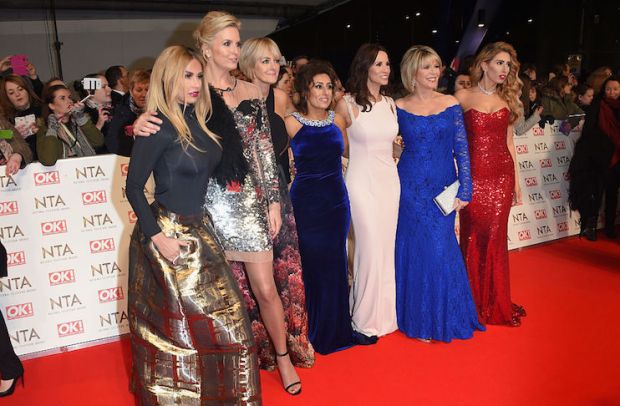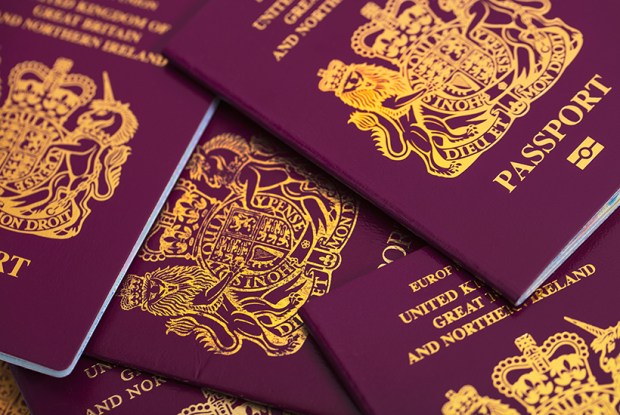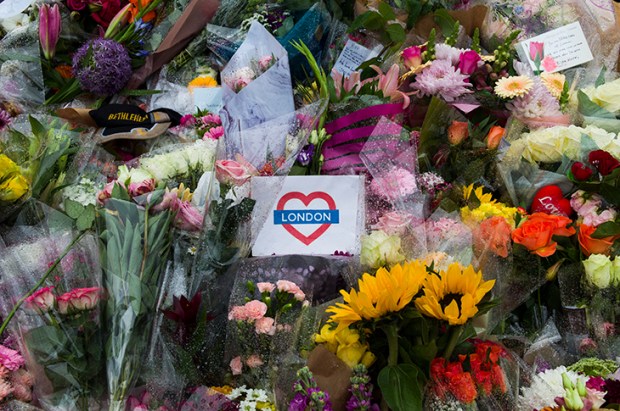I suppose it was a bit naive to wander on to Newsnight having been booked to talk about Brexit and my new book and expect to talk about Brexit and my new book. I should have expected instead to be shrieked at about ‘racism’ by a fishwife on acid, which is what happened. In the usual calm, measured and unpartisan manner, Emily Maitlis suggested that I spewed bile each week for the Murdoch press. I might have pointed out that at least people voluntarily fork out their couple of quid to immerse themselves in that bile, rather than as in her case being involuntarily taxed to pay for her inflated salary, a reward for lousing up prime ministerial debates and reading an autocue in a bien pensant manner to a pygmy audience. Everything, for Emily, is racist, as it is for the vast majority of the BBC.
I was meant to be debating the issue with director of communications for the People’s Vote campaign, Tom Baldwin — but even he couldn’t get a word in edgeways. I asked Mr Baldwin afterwards if he had read the book we were meant to be discussing and he said he’d read quite a bit of it, on the Tube, which is wholly commendable. However he did add that he had removed the cover from the book so that people didn’t see him reading something written by me. ‘You’re a pariah in north London, you know,’ he said, laughing. Good. Long may that remain. And so — onwards with the bile, ever more bile, bile so vividly green Caroline Lucas would vote for it. The next 700 words are all racist bile, if you’re Maitlis. If you’re not Maitlis I think you’ll be able to cope.
A report out last week gave rise to a succession of news reports about endemic racism within the workplace, regarding earnings. The study came from the Office for National Statistics and showed that earnings for ethnic minorities in the UK were 3.8 per cent less on average than they were for white people. The key here is in that word ‘average’, although that didn’t register in some of those news reports.
Most of the coverage focused on the fact that Bangladeshi and black British workers earn a lot less than white people, more than two quid per hour in the case of Bangladeshis and one quid in the case of black British people. Structural racism, then, you see. Except for the slightly inconvenient point that way out there at the top of the earnings chart were the Chinese, who earned almost four quid more per hour than the whites, and indeed Indians, who earned almost £1.50 more. So if it is racism, it’s a very specific and discriminatory form of racism.
Pakistanis also do very badly by comparison, earning over three pounds less per hour than the Indians, whom they closely resemble and with whom they were once conjoined in a glorious and happy empire. How, then, can racism be to blame for this discrepancy? And if it’s not racism, then what is the cause?
The first answer might be to look at a few other statistics, such as those charting educational attainment by ethnicity. These figures — produced by the Department for Education — mirror almost exactly those earnings figures, with one or two discrepancies. For GCSEs, the Chinese come top, by a mile, the Indians come second. White British come a little further down the list, easily beaten by white Irish. Level with the white British are black people of African descent; only in the headlines are they grouped together with black British people of Caribbean heritage, who perform less well.
Now, the discrepancies. First, bottom of the list for academic attainment by a hefty margin are children from Roma/traveller families — and they were not included in that ONS survey, for reasons I will leave you to work out. And second, Bangladeshis out-perform white British kids at GCSE (although they are still well below the Indians and Chinese).
What might explain the gap between this comparative success and the low earnings of the adult population? Is it possible that the top employers would baulk at taking on someone called Mohammed, but have no aversion to the names Anand or Patel? Possibly, and we should allow for that caveat. But it is also true that of Britain’s ethnic minority communities, Pakistani and — especially — Bangladeshi adults are the least likely to speak English fluently or indeed at all. Sajid Javid highlighted this point in a government green paper — some 770,000 people in the UK have either a frail or nonexistent grasp of English, the overwhelming majority being Pakistanis and Bangladeshis.
Add to that the fact that Bangladeshi families (again from Javid’s green paper) are the least likely to take advantage of free child-care facilities, and you begin to understand why, though Bangladeshi children generally do well at school, their elders are behind in the labour market. Too many of the older generation are unable to speak English. It is also true that both Bangladeshis and Pakistanis often come from working-class backgrounds, whereas Indians and Chinese are more predominantly (although far from exclusively) middle class.
So, to sum up: first, whatever the reason for those discrepancies between ethnic minorities in earnings, racism is almost certainly not the cause. Second, the headline figure — that ethnic minorities earn 3.8 per cent less than the white British — is utterly meaningless, given the vastly different level of earnings within ethnic minority communities. Third, the most obvious explanation for disparity in earnings can be found in the figures for educational attainment: communities which value education the most highly go on to earn the most money, with the exception of Bangladeshis, who may be hampered by having insufficient language skills. Whatever the cause, then, it ain’t race.
Got something to add? Join the discussion and comment below.
Get 10 issues for just $10
Subscribe to The Spectator Australia today for the next 10 magazine issues, plus full online access, for just $10.
You might disagree with half of it, but you’ll enjoy reading all of it. Try your first month for free, then just $2 a week for the remainder of your first year.















Comments
Don't miss out
Join the conversation with other Spectator Australia readers. Subscribe to leave a comment.
SUBSCRIBEAlready a subscriber? Log in